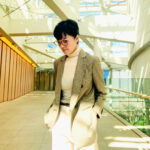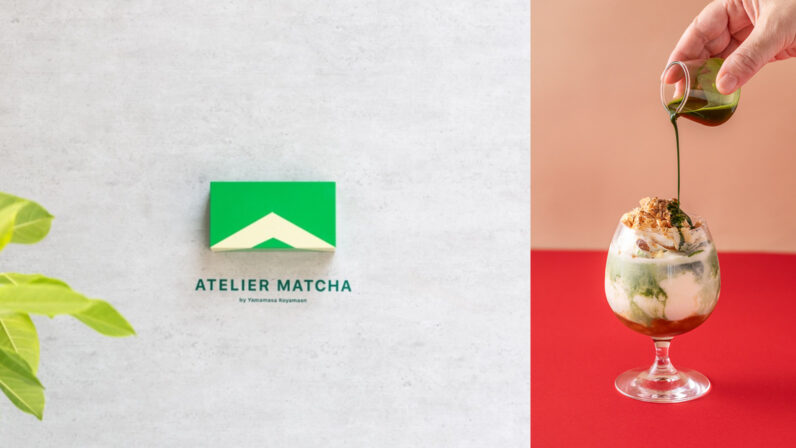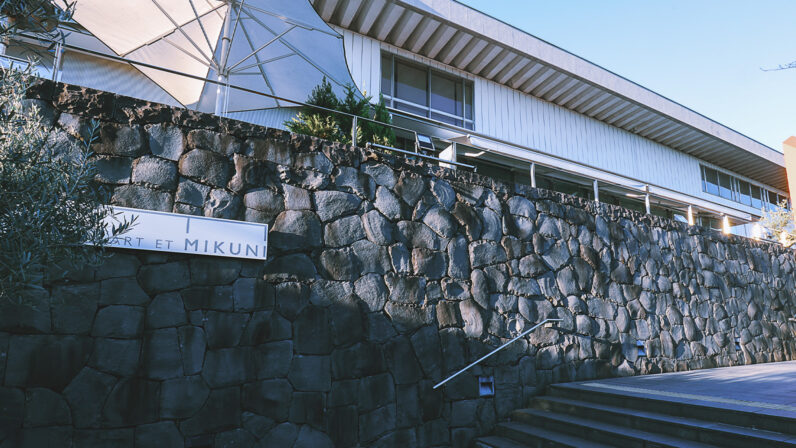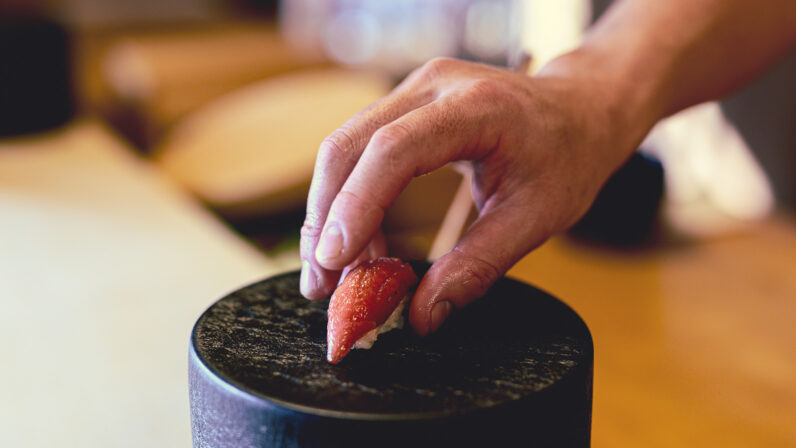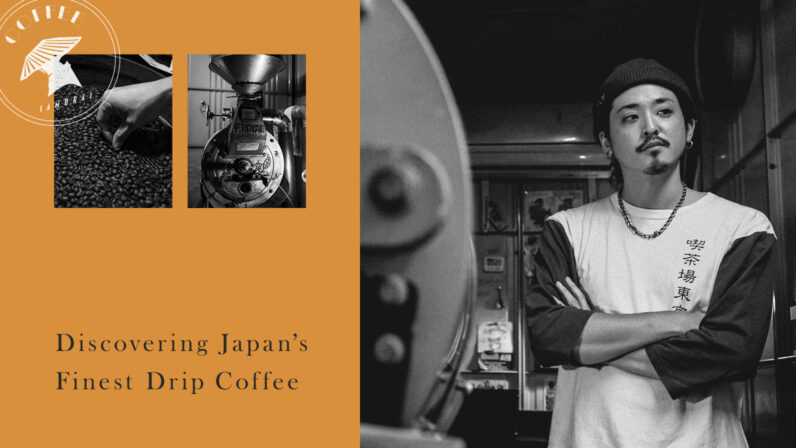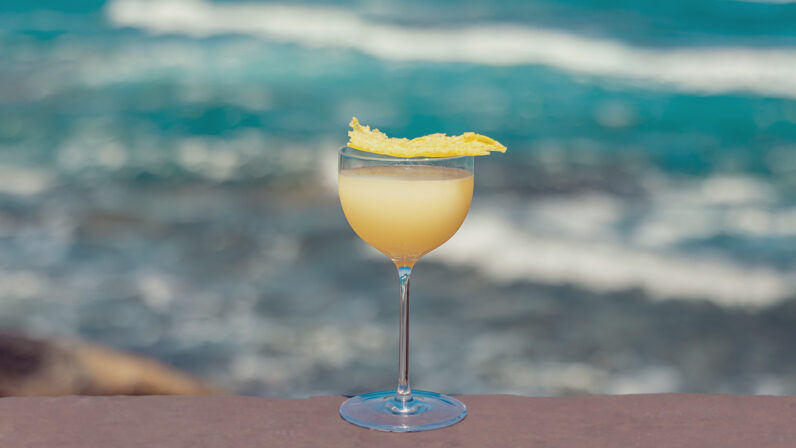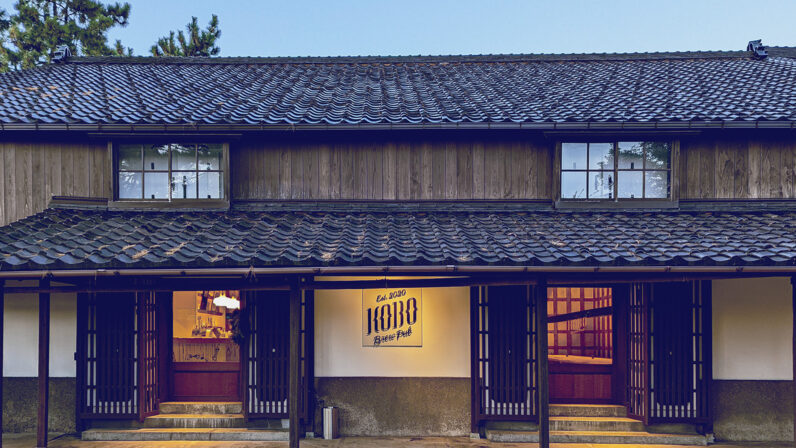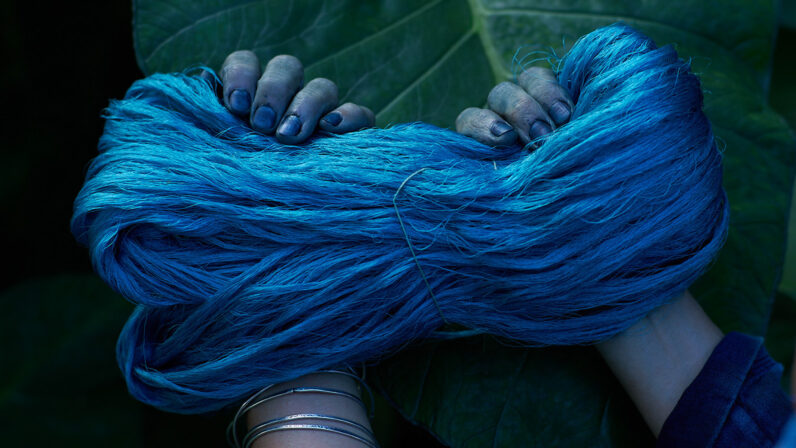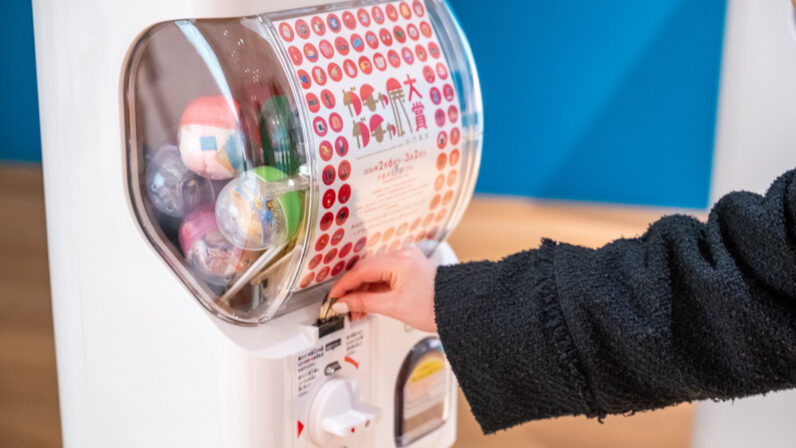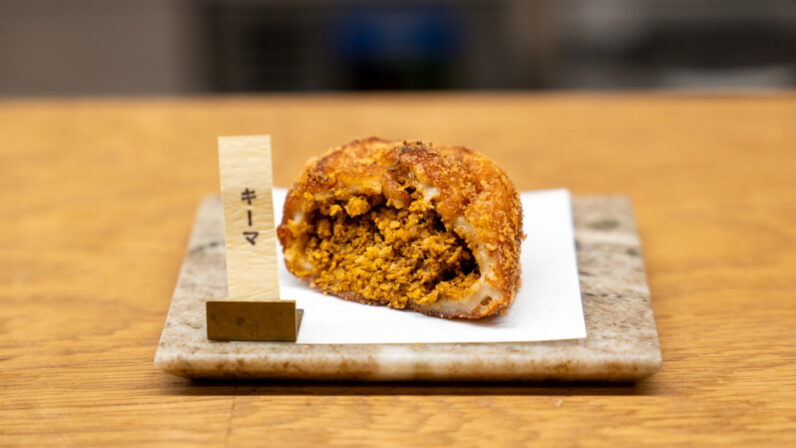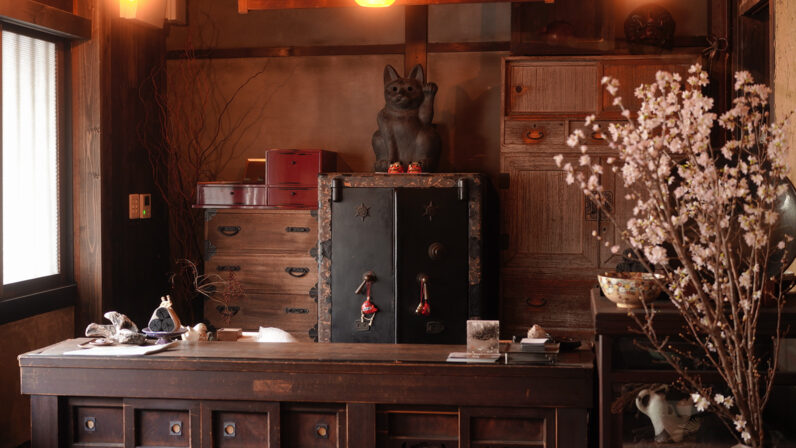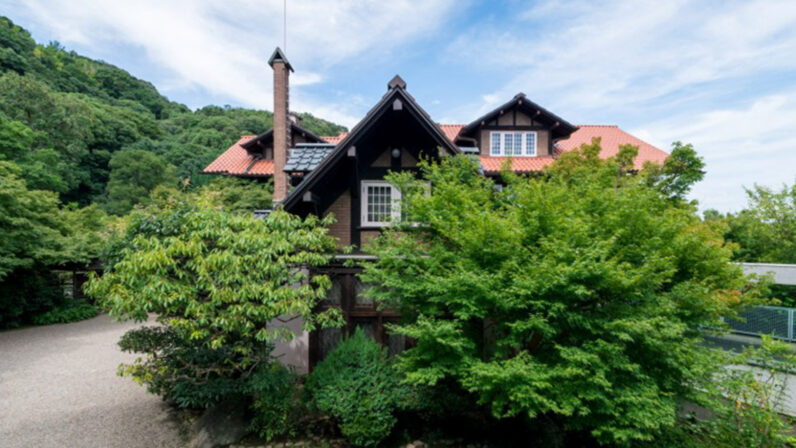In Japan, there are coffee shops that are dedicated to exploring the art of home roasting raw coffee beans, and using the hand-drip method to extract maximum flavor. In this series, we’ll be taking you on a journey to discover these exceptional places, where the passionate philosophy of the shop owners adds an extra layer of flavor. In this eighth installment, we head to the Chiba New Town area along the line to Narita Airport, where we discover muni coffee, serving coffee that is gentle yet quietly resolute, deeply rooted in its community.
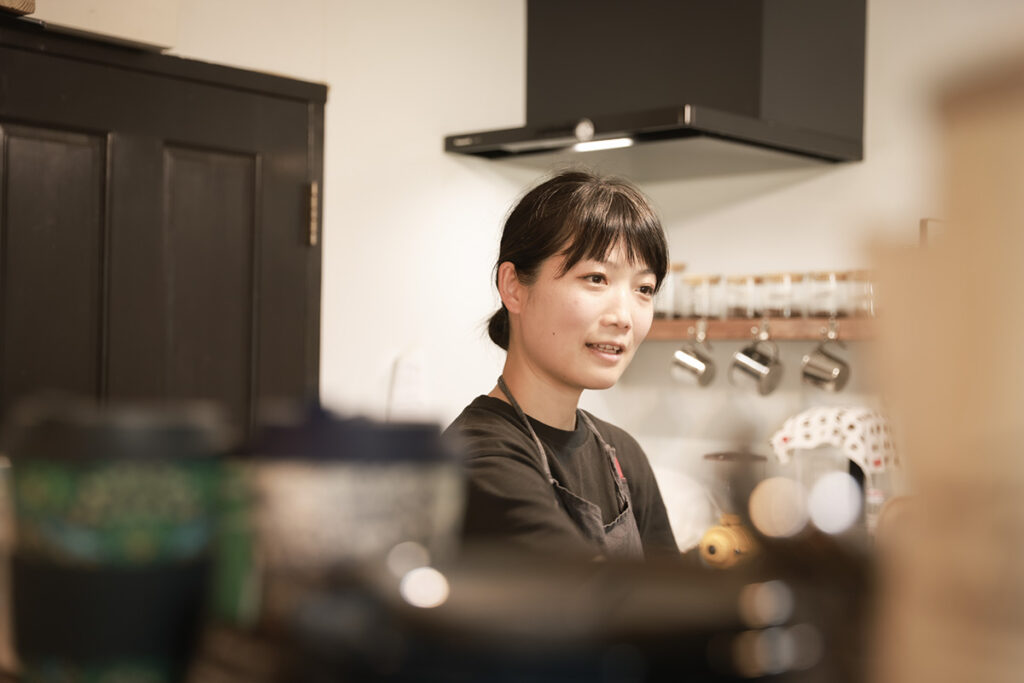
PROFILE
Yuka Takahashi was born in 1988 in Chiba Prefecture. She began her coffee journey at Cafe Sucre and later helped launch kaico cafe in Osaka. At the same time, she honed her roasting skills at LANDMADE in Kobe. Her dedication paid off in 2015, when she became the first woman to win the Japan Hand-Drip Championship (JHDC), organized by SCAJ. In October 2020, she returned to her roots to open muni coffee in Chiba New Town.
A Cup of Coffee Like a Piece of Music
About an hour by train from central Tokyo, followed by a seven-minute taxi ride through the orderly rows of shops and apartment buildings, you’ll find Tsukushi Farm Village along Route 189. Styled in a British country aesthetic, the village stands out against the modern new-town surroundings. Amid the cozy, nostalgic buildings sit a flower shop, a bakery, and muni coffee, which has been welcoming visitors since October 2020.
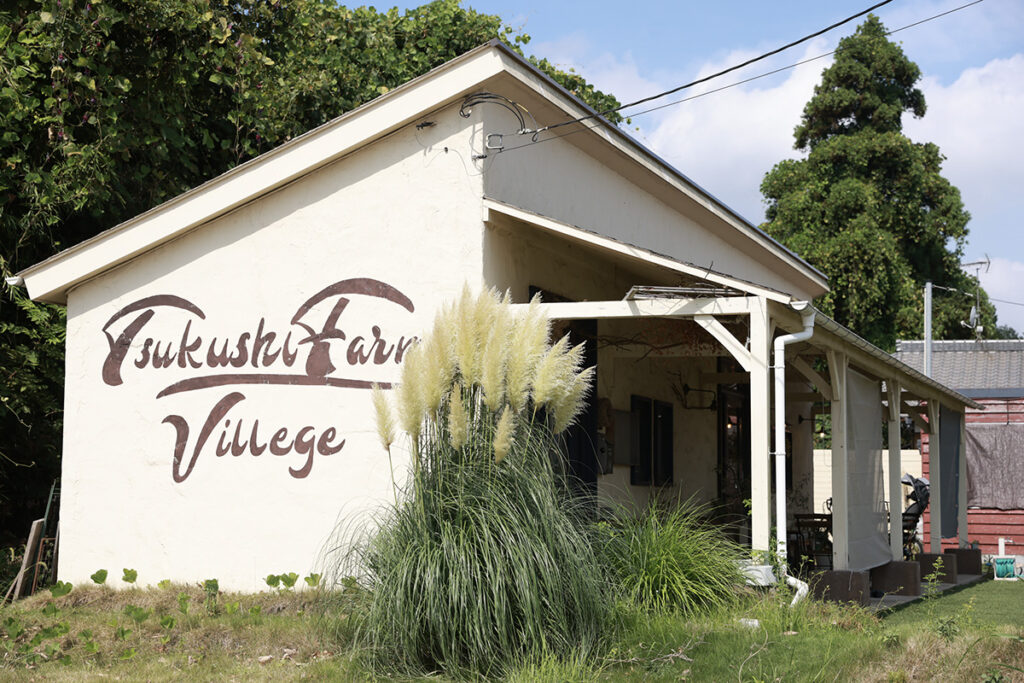
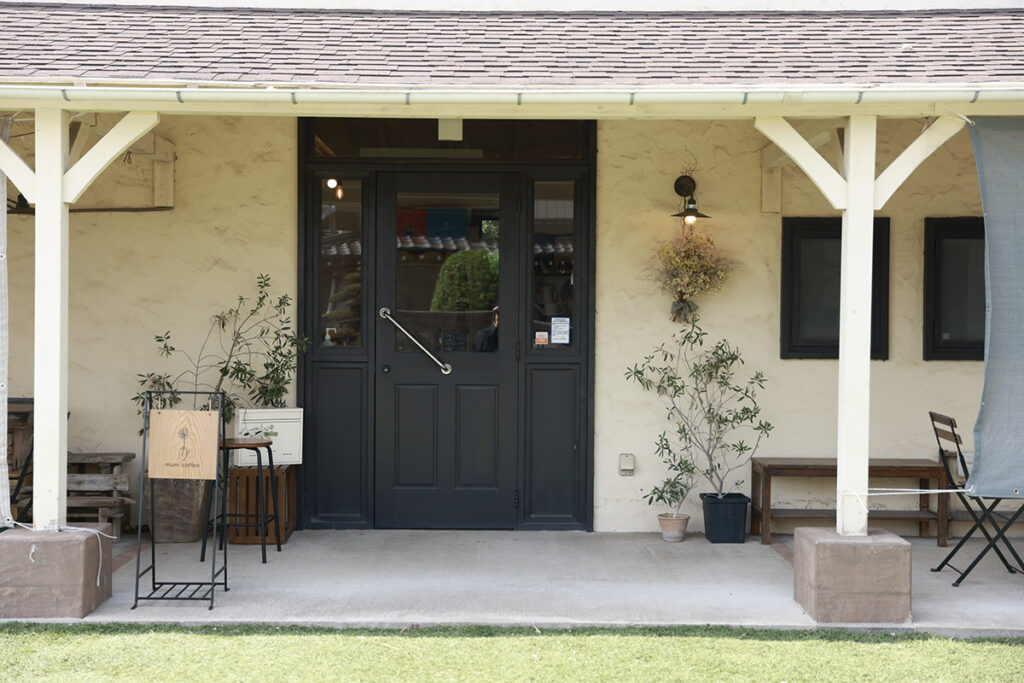
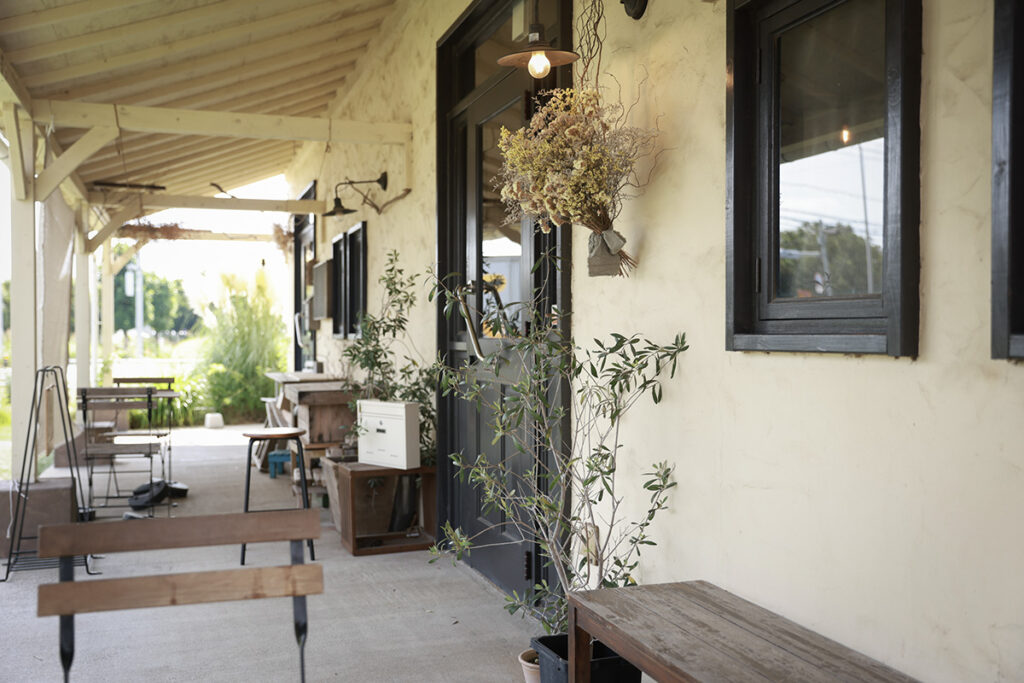
The single-story village is designed with a spacious, open feel and a shared terrace.
I push open the forest-green wooden door and am greeted by a warm smile from Yuka Takahashi, the first woman to be featured in this series. Petite and delicate at first glance, she moves around the space with a light, rhythmic ease. When she offers, “Would you like a cup of coffee to start?” I gladly accept and order the café’s signature muni blend.
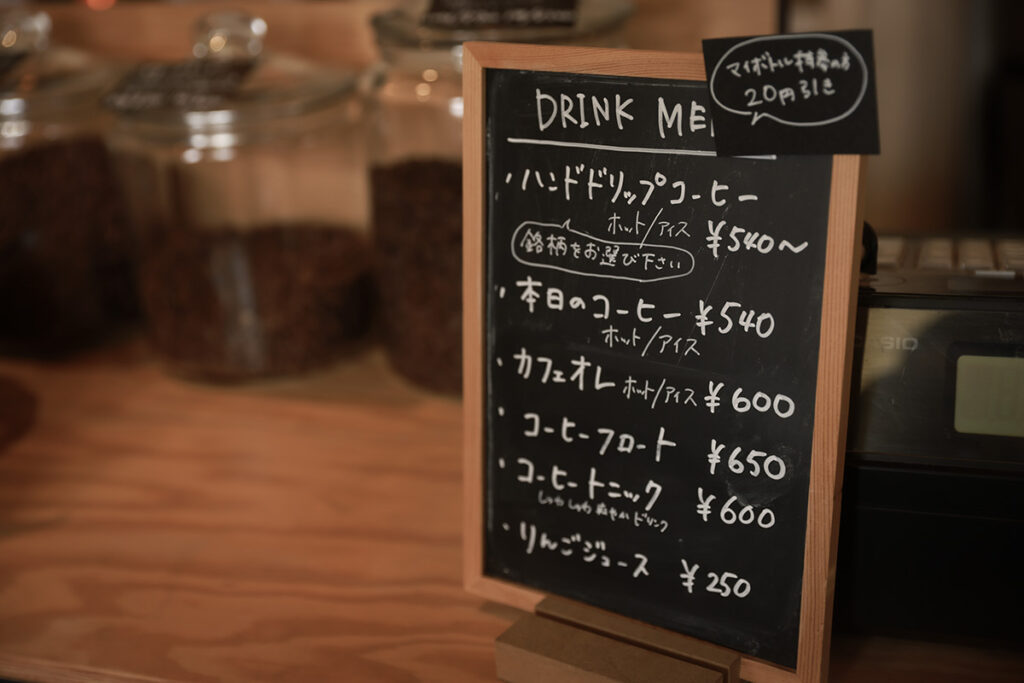
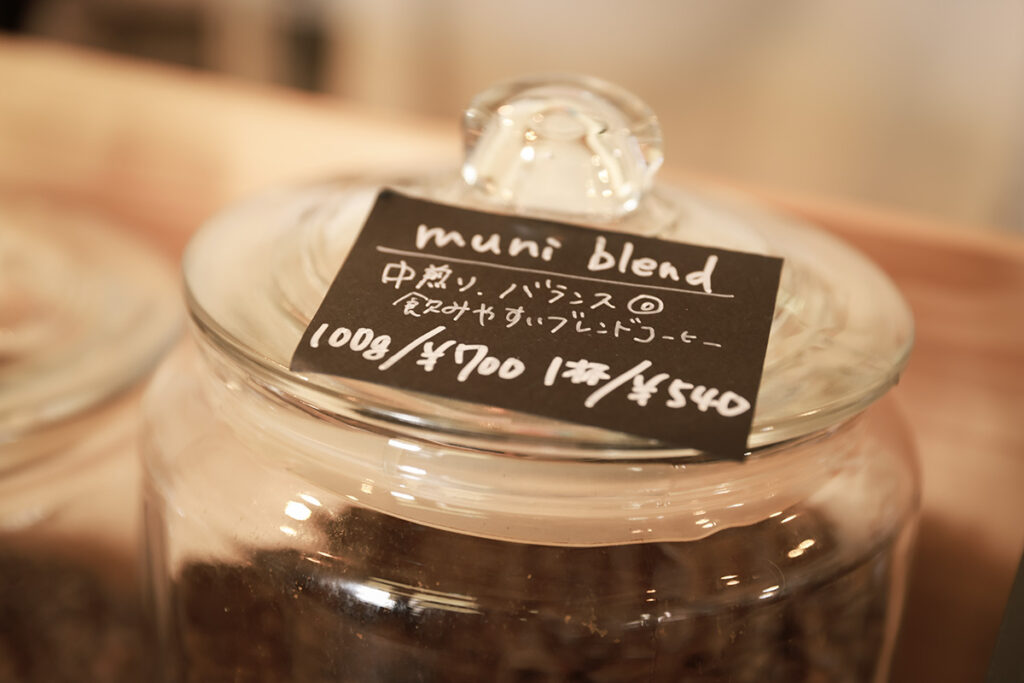
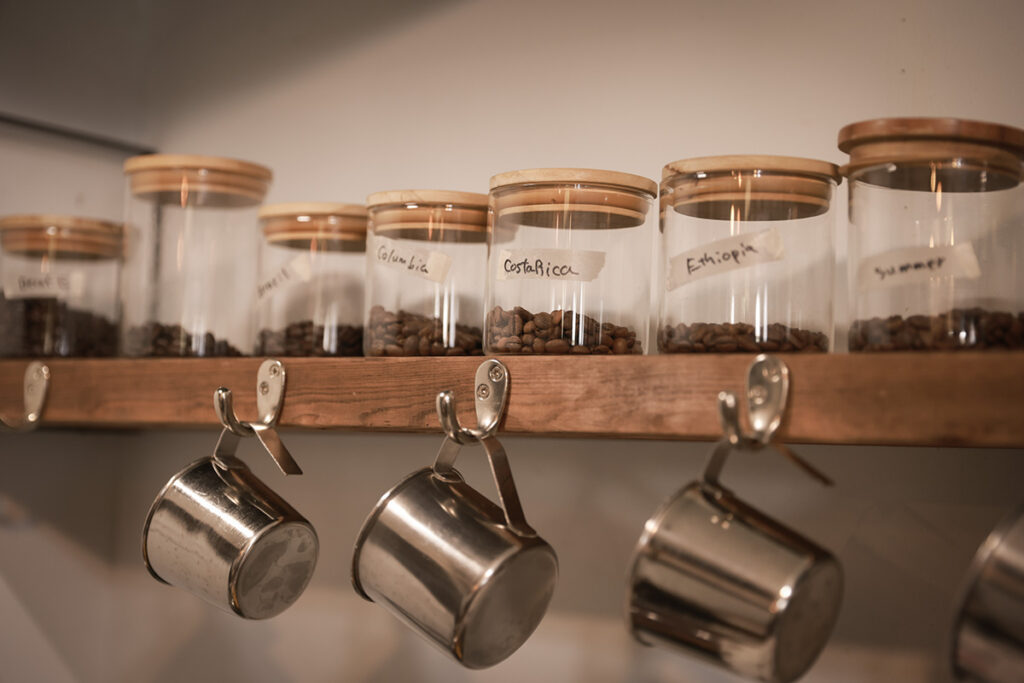
The hand-drawn menus and signs create a warm, welcoming atmosphere.
Once an order comes in, she measures out the beans and pours them into the Fuji Royal Miruko grinder. Compact and sunny yellow, it may look cute, but it’s built for professional use, offering impressive grinding speed, beautifully even grounds, and quiet operation. For the pour-over, she uses a kaico kettle. Its sleek design isn’t just for show, it was also her trusted partner when she won the 2015 Japan Hand-Drip Championship (JHDC). “Because it has a good weight to it, it keeps my hand steady,” Yuka explains. “The water falls straight and clean, so I can pour exactly as I imagine during the bloom. That’s really important for hand-drip.”
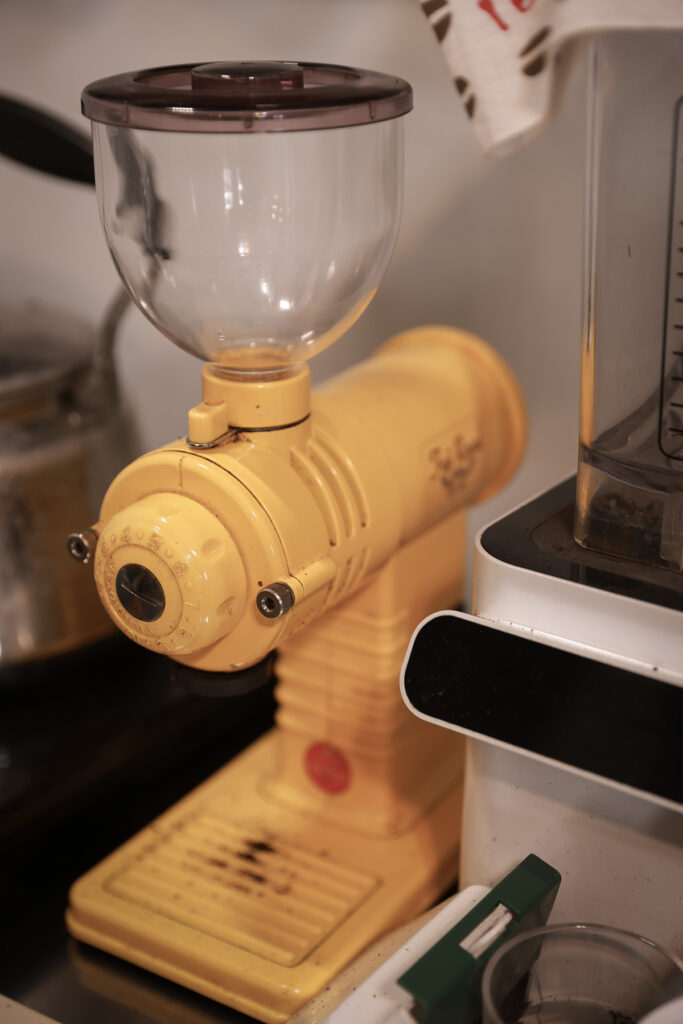
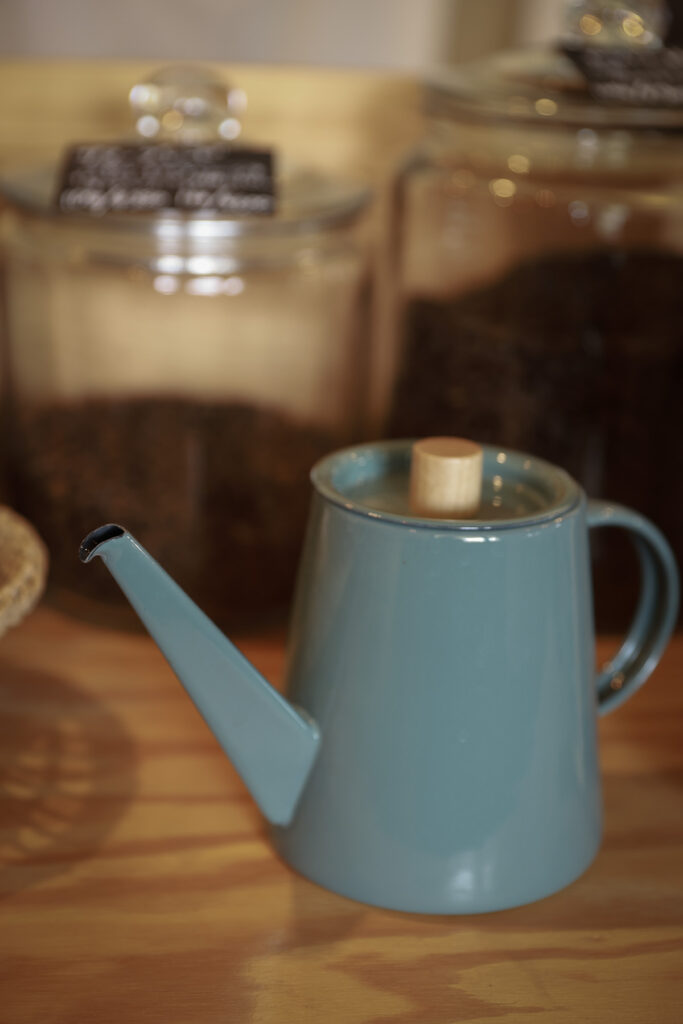
Yuka’s personality shines through in the colorful accents. The second drip kettle is a design by Makoto Koizumi, known for creating numerous acclaimed products.
She starts by pouring water into the center of the dripper, letting the beans soak evenly and bloom. Once the initial rise settles, she adds the next pour. She repeats this a few times, keeping the circle tight and paying close attention to the coffee’s subtle breathing. “I think of it like drawing out the first essence of flavor, gently extracting under the pressure of the bloom,” she says, her hands moving gracefully as 200 ml of fragrant coffee fills the server.
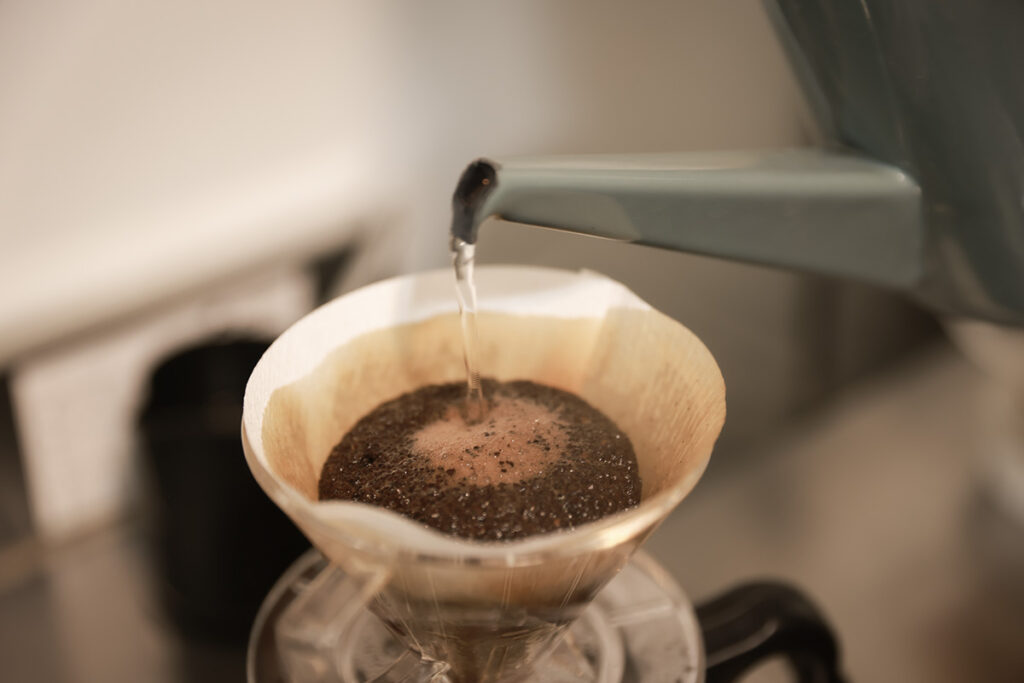
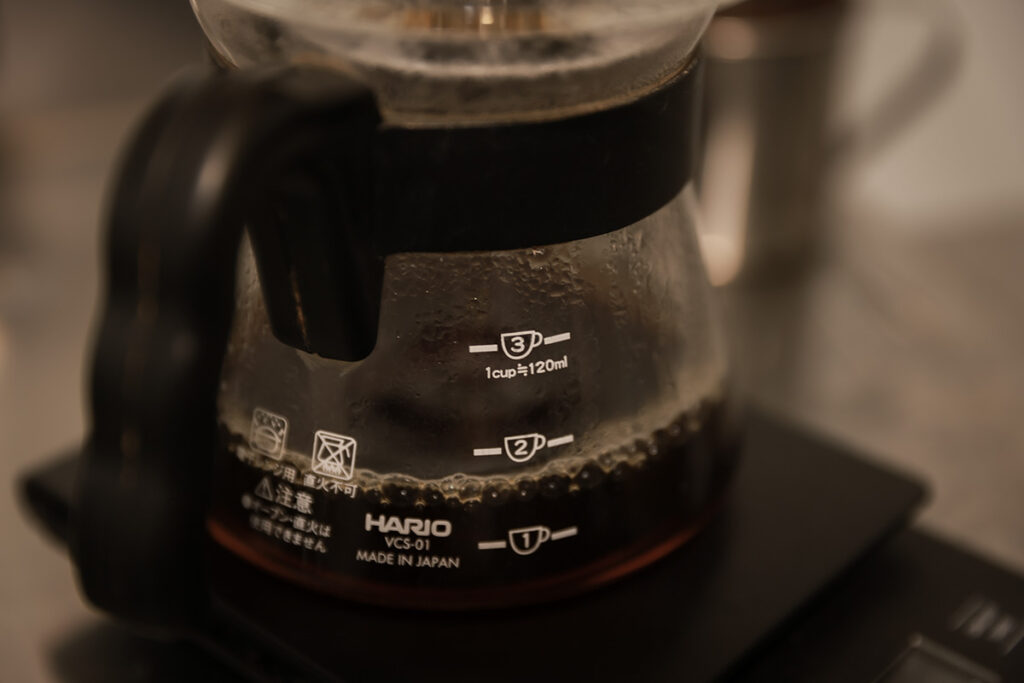
She notes that after trying drippers from many different makers, she finds the Kono-style dripper best at bringing out both richness and sweetness.
I take a sip of the muni blend served in a takeaway cup. It’s light yet full-bodied, with a clean finish that makes you want another serving. The house blend aims for three things: approachable for anyone, easy to brew at home, and still enjoyable even when cooled. When I ask about the bean ratio, she explains, “The base is Brazilian beans with a natural, floral brightness, Colombian beans add a rich harmony, and Indonesian beans bring in the deep bass notes.” She describes the blend like a perfectly composed trio, speaking of coffee as if it were music.
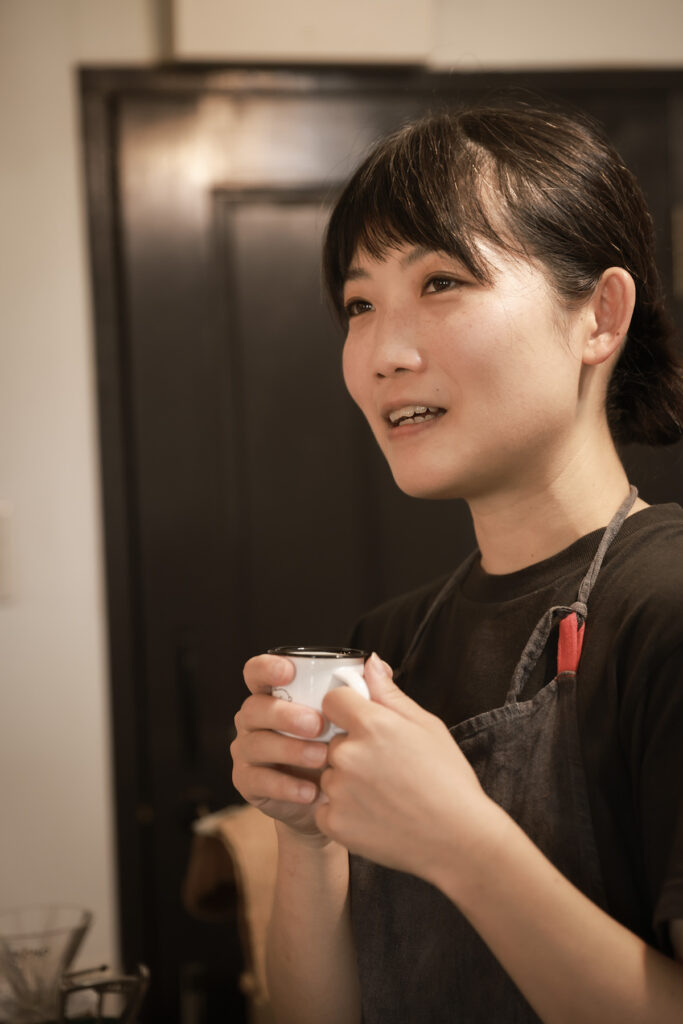
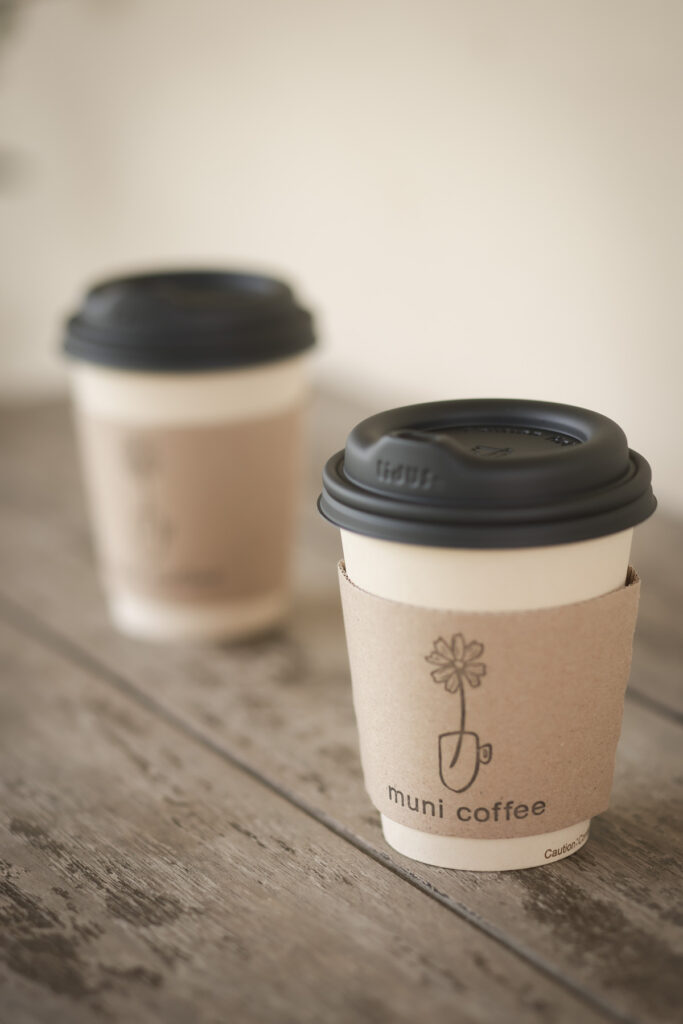
Since most customers come by car, the coffee is intentionally served in takeaway cups.
Yuka also collaborates with Chiba-born musician Yunami on projects that blend music and coffee. One creation is a blend inspired by Yunami’s song GREEN AIRPORT, made in partnership with Narita International Airport. The song’s theme is all about connecting, and the Japanese title can be loosely translated as “A Place Where Sky and Green Meet.” Light-roast Ethiopian beans evoke the wide, clear sky, dark-roast Brazilian beans represent the earth, and medium-roast Papua New Guinea beans trace the airplane linking the two.
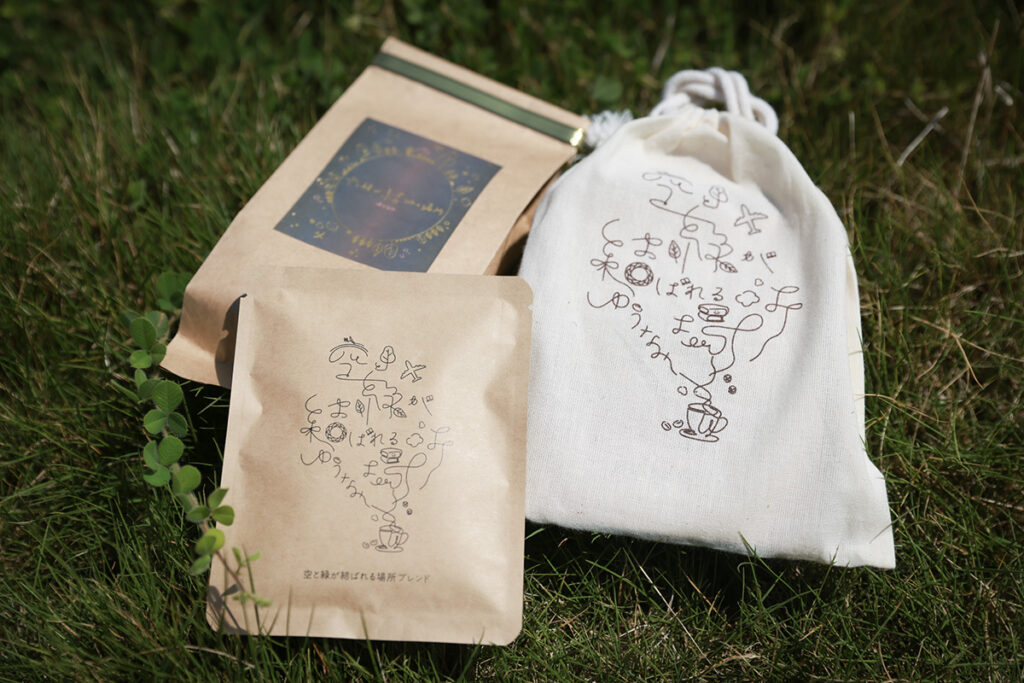
The collaboration blend between Yunami and muni shares its name with the song that is played at Narita International Airport.
Striving to Build a Café That Will Endure for a Century
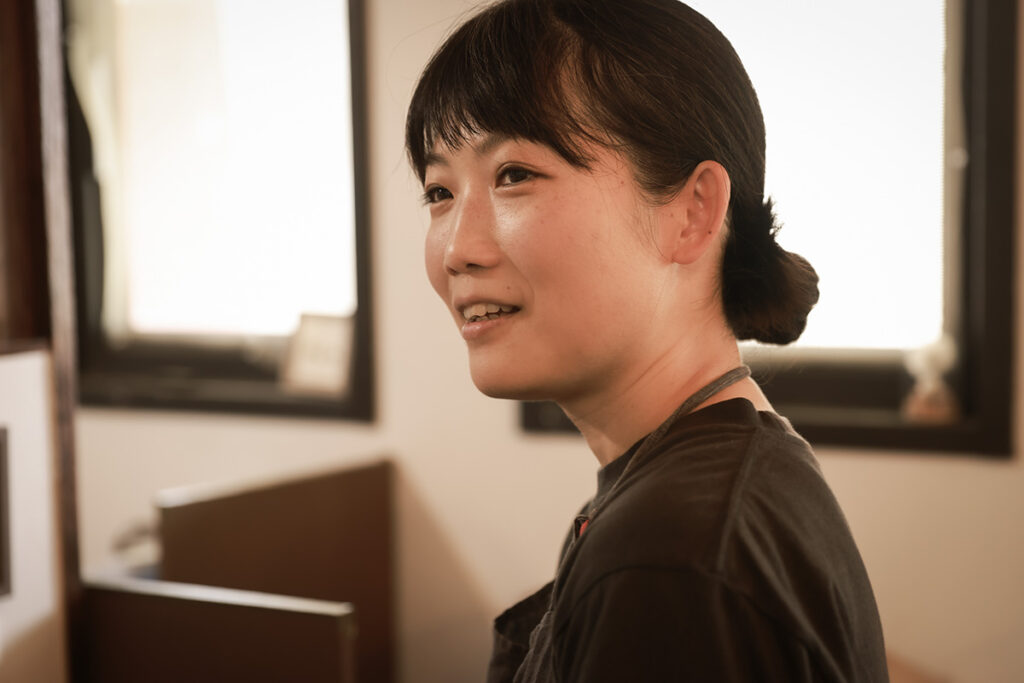
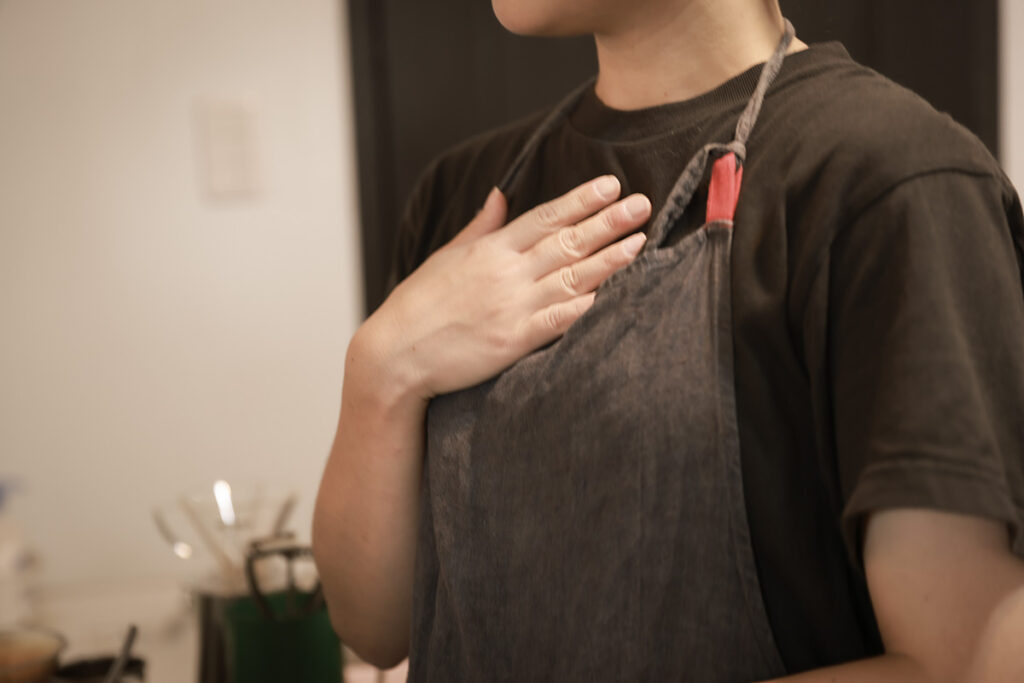
Yuka’s aim is to serve coffee that fits naturally into everyday life.
Yuka’s love for coffee began simply because it pairs so well with her favorite chocolate. While studying at university in Kichijoji, a neighborhood full of carefully curated independent cafés, she naturally started visiting them one by one. Growing up in a new town dominated by chain stores, she also harbored a quiet dream of one day running her own café in her hometown. When it came time to decide her career path, she was fortunate to find a job opening at the renowned Cafe Sucre in Hikifune. In 2011, she dove into the industry and discovered the world of specialty coffee. A cup prepared by owner Yuko Nirei left a deep impression, and she was surprised by how different her own cup tasted even when using the same beans under the same conditions. She realized that hand-drip brewing, unlike machines, lets you shape the flavor throughout the process, and she set out to master this skill completely.
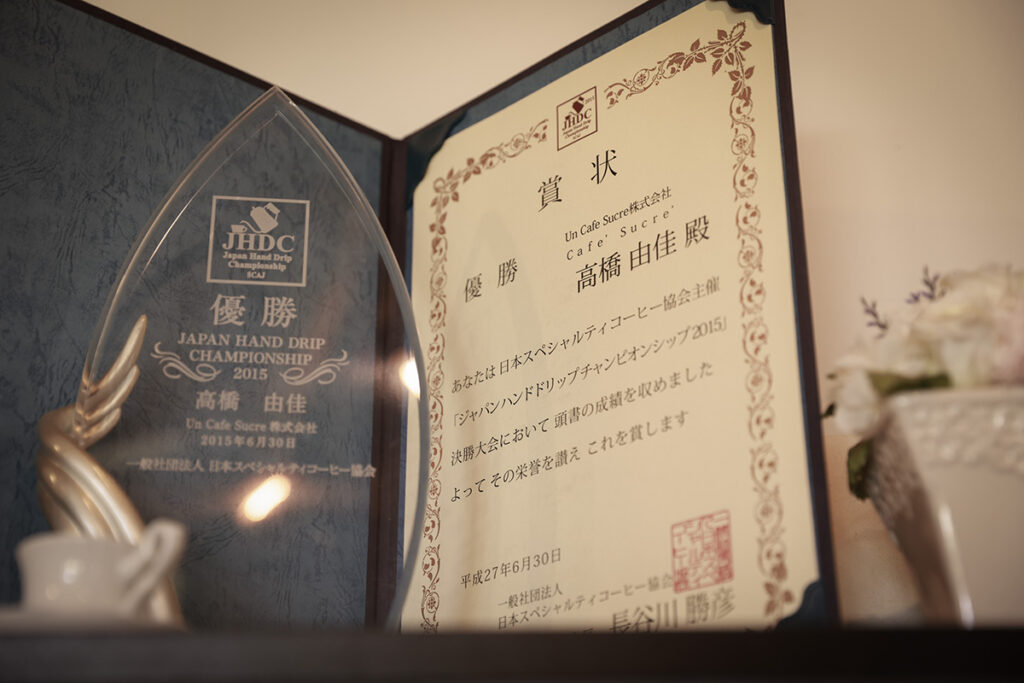
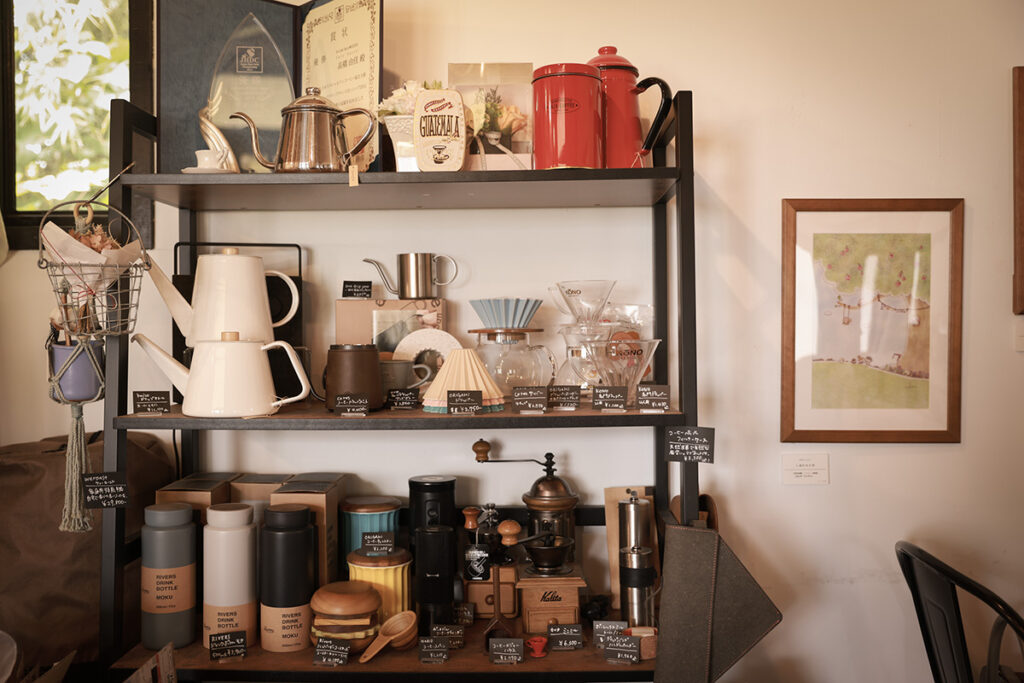
A subtle display inside the café showcases her JHDC championship award, and the kaico kettle she favors is also available for purchase.
Encouraged by others, she first entered the JHDC in 2013, making it to the finals but just missing out on the win. The following year, she again fell short of the top spot, and by 2015, she was struggling through a slump. As doubts crept in, the Kanto regional slots had already been filled, but with the support of a coffee bean importer, she entered the Osaka qualifiers. Traveling alone by overnight bus, she advanced through the preliminaries and that year became the first woman to claim the championship.
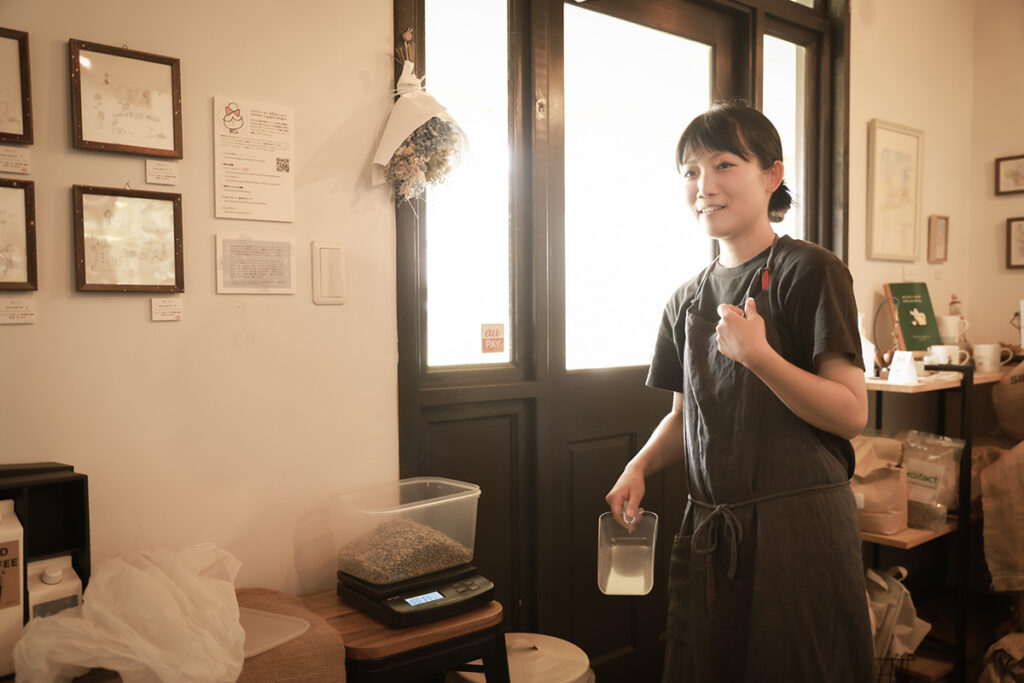
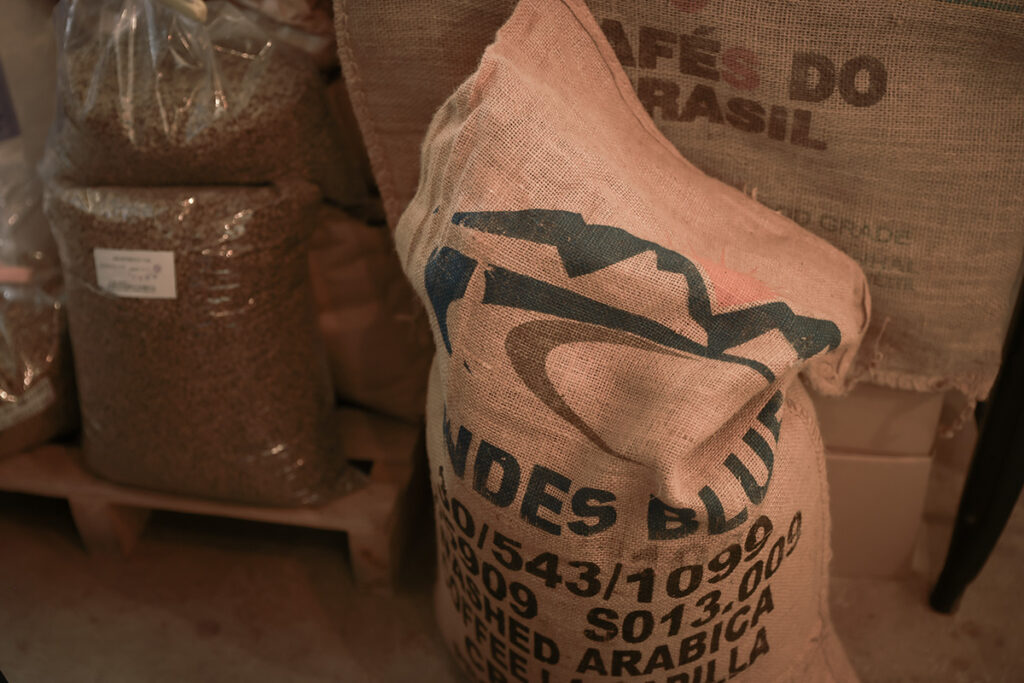
The shop sells 6–7 types of beans, and with their wholesale blends included, they typically offer 10–12 varieties.
After spending six years at Cafe Sucre, Yuka joined the opening team of kaico cafe in Osaka. At the same time, she spent her weekends in Kobe at LANDMADE, honing her roasting skills. While waiting for the right opportunity to go independent, she heard from a former part-time colleague about a new mixed-use facility opening in her hometown. That turned out to be the nostalgic, single-story country house Tsukushi Farm Village mentioned earlier. With a flower shop and bakery already confirmed, the remaining space was ideal for a coffee shop. The arrangement came together smoothly, though the opening coincided with the height of the COVID-19 pandemic. Yuka decided to focus on selling freshly roasted beans for home enjoyment, with takeout coffee as the main offering. This ultimately shaped the style that defines muni coffee today.
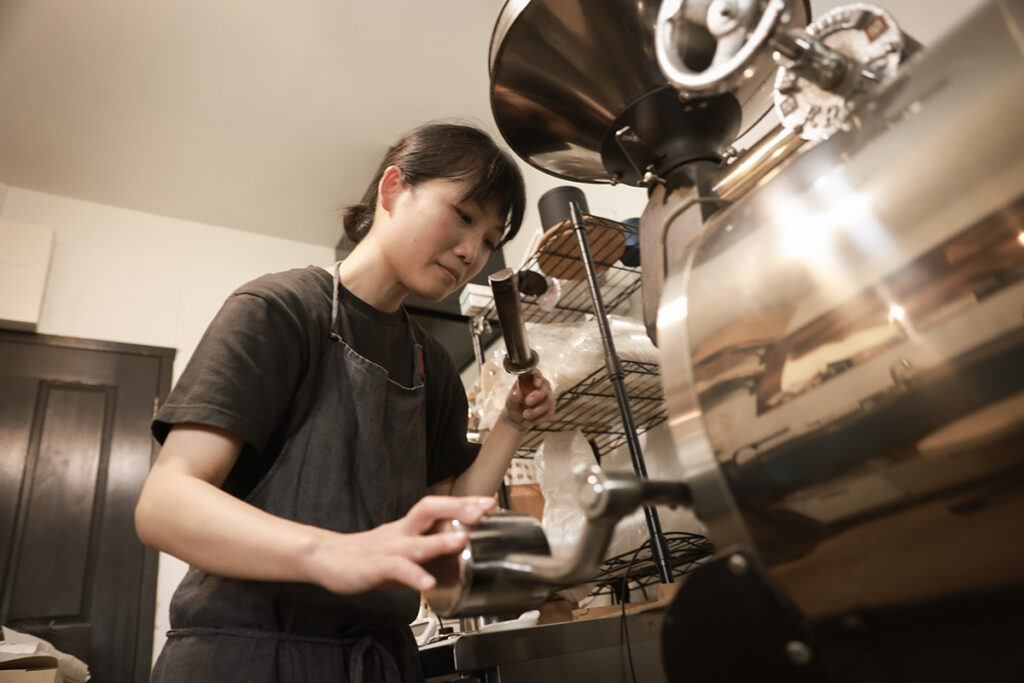
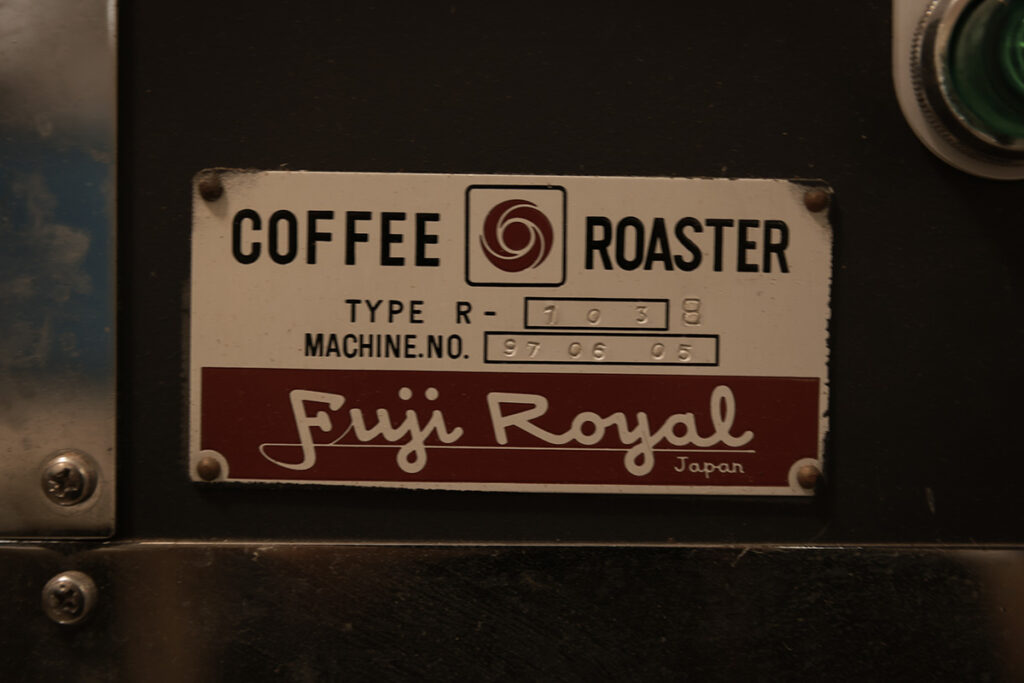
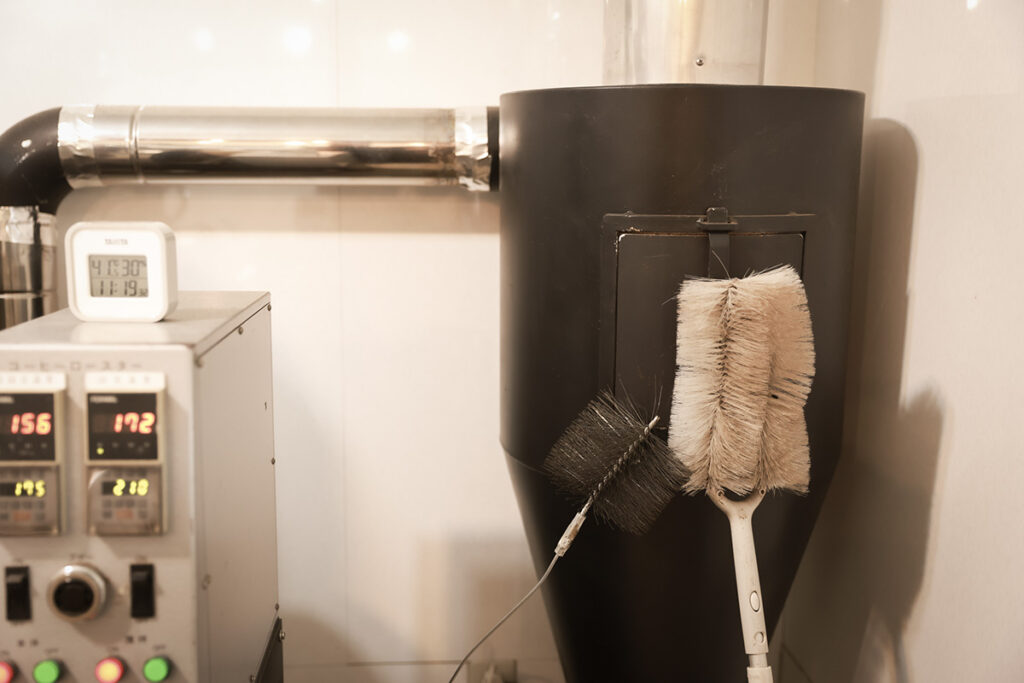
Images 1–2: She favors the Fuji Royal semi-hot-air roaster for its ability to bring out the best in any bean.
Image 3: The chimney is carefully cleaned on a regular basis with a special brush.
When asked about her future dreams, she says, “There are no long-established shops in this new town, so I want to create one that lasts 100 years.” She continues, hoping that muni coffee will become both a local institution and a source of a unique daily experience for her customers.
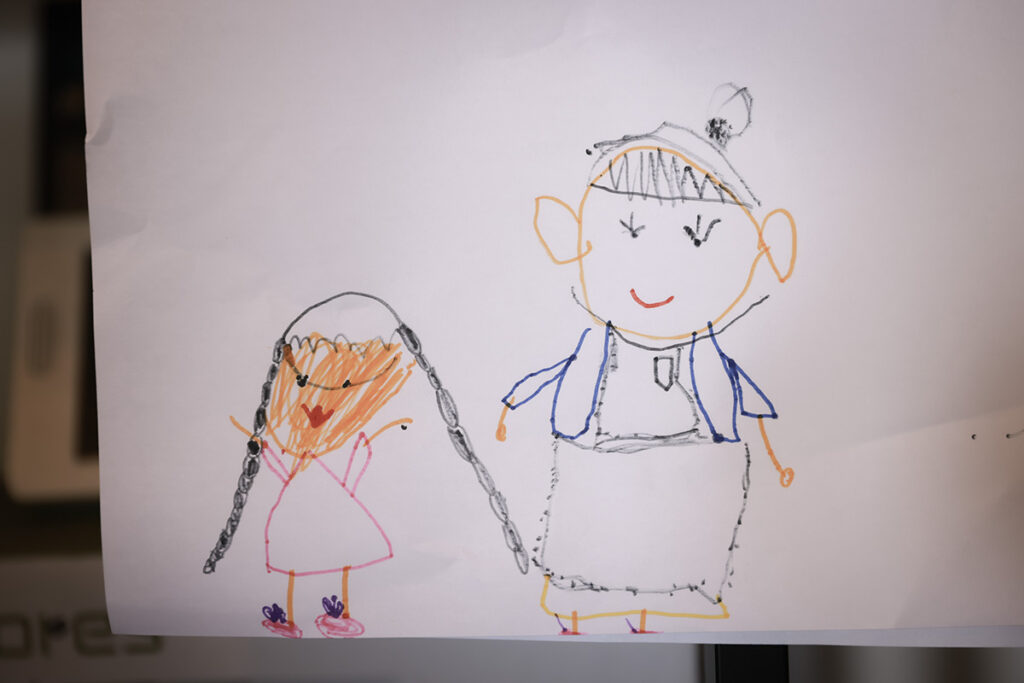
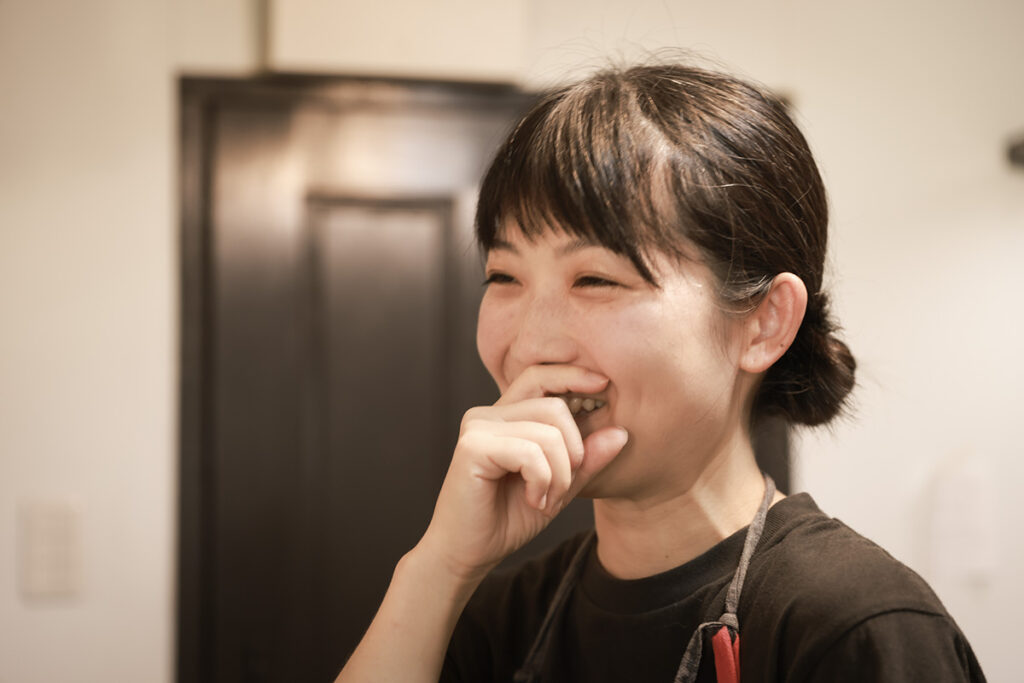
Yuka, a mother herself, smiled warmly as she gazed at a painting in the shop, explaining that it was drawn by a regular customer’s child and shows her together with her daughter.
muni coffee
Official Instagram: @muni_coffee
Address: 719-4 Kiyoto, Shiroi City, Chiba Prefecture, Japan
Phone: +81 474-04-8708
COFFEE
Roast Level: Medium-light to medium-dark
Roaster: Fuji Royal semi-hot-air, 3 kg
Grinder: Mirukko
Brewing Method: Paper / Kono
Varieties: Blends (2), Single Origins (3), Decaf (1)
Serving Vessel: Takeout cup

